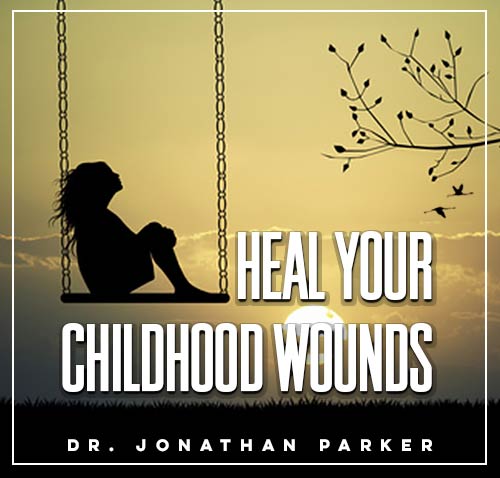Healing Childhood Anxiety: Find Emotional Resilience

Before diving in, please note: This post is for informational purposes only. If you’d like to know more about how we approach topics, feel free to check out our friendly Disclaimer Page.
Hey there, amazing readers! 🖐️ Just a quick note: yes, we know there are a lot of ads here. Trust us, we get it—it’s not the prettiest look, but they help us keep this blog alive and kicking. Those pesky little ads cover the costs of all the behind-the-scenes magic, from hosting and tech stuff to creating content we hope you’ll love.
We’re committed to delivering quality posts, and your support (even just sticking around despite the ads) means everything to us. So, bear with us, and thanks for helping us keep the good vibes rolling. Now, on to the fun stuff! 😉
TRANSLATE BUTTON AT THE END OF THE ARTICLE
A Quick Overview
Childhood anxiety is a common mental health issue that can have a significant impact on a child’s well-being and development.
It is essential for parents and caregivers to understand the signs and symptoms of anxiety in children and learn how to help them build emotional resilience.
By providing a supportive environment, teaching coping strategies, and seeking professional help when needed, it is possible to help children manage their anxiety and thrive.
Understanding Childhood Anxiety
Childhood anxiety is a psychological condition characterized by excessive worry, fear, and apprehension.
It can manifest in various forms, such as separation anxiety, social anxiety, generalized anxiety disorder, phobias, and panic attacks.
Children with anxiety may experience physical symptoms like stomachaches, headaches, sleep disturbances, and irritability.
Understanding the root causes of anxiety in children is crucial for providing appropriate support and intervention.
Signs and Symptoms of Childhood Anxiety
Recognizing the signs and symptoms of childhood anxiety is essential for early intervention and support.
Some common indicators of anxiety in children include:
Excessive worrying or fear about everyday activities or events
Difficulty separating from parents or caregivers
Avoidance of social situations or new experiences
Physical symptoms like stomachaches, headaches, and fatigue
Restlessness, irritability, and difficulty concentrating
Sleep disturbances, including nightmares or trouble falling asleep
Impact of Anxiety on Child Development
Childhood anxiety can have a profound impact on a child’s development and well-being.
When left untreated, anxiety can interfere with a child’s academic performance, social relationships, and emotional health.
Chronic anxiety in childhood is also linked to an increased risk of developing mental health disorders in adulthood, such as depression and anxiety disorders.
It is crucial to address anxiety in children promptly to prevent long-term consequences on their development.
Importance of Emotional Resilience
Emotional resilience refers to a child’s ability to adapt to and cope with stress, adversity, and challenges.
Building emotional resilience in children is crucial for helping them navigate difficult situations and manage their anxiety effectively.
Resilient children are better equipped to bounce back from setbacks, regulate their emotions, and maintain a positive outlook on life.
By teaching children how to develop emotional resilience, parents can empower them to face anxiety with confidence and strength.
Building Emotional Resilience in Children
There are several ways parents can help children build emotional resilience and manage anxiety effectively:
Encourage problem-solving and critical thinking skills
Promote a growth mindset and positive self-talk
Teach relaxation techniques like deep breathing and mindfulness
Foster strong social connections and support networks
Encourage physical activity and healthy lifestyle habits
Techniques for Managing Childhood Anxiety
In addition to building emotional resilience, there are various techniques that can help children manage their anxiety:
Cognitive-behavioral therapy (CBT) to challenge negative thought patterns
Discover "SUPERFOODS: The Key to Health and Balance🥗" 🌿🌺
Exposure therapy to gradually confront fears and phobias
Relaxation techniques like progressive muscle relaxation and guided imagery
Mindfulness practices to increase awareness and reduce stress
Encouraging regular physical activity and adequate sleep
Seeking Professional Help for Anxiety
If a child’s anxiety significantly impacts their daily functioning or quality of life, it is essential to seek professional help from a mental health provider.
A psychologist or therapist can conduct a comprehensive assessment of the child’s symptoms and develop a personalized treatment plan.
Treatment options for childhood anxiety may include therapy, medication, or a combination of both, depending on the severity of the symptoms.
Creating a Supportive Environment
Creating a supportive and nurturing environment is critical for helping children manage their anxiety effectively.
Parents can support their child by:
Providing reassurance and validation of their feelings
Establishing predictable routines and boundaries
Encouraging open communication and active listening
Modeling healthy coping strategies and resilience
Creating a safe and comfortable space for children to express their emotions
Encouraging Open Communication
Open communication is key to understanding a child’s thoughts, feelings, and experiences related to anxiety.
Parents should create a safe and non-judgmental space for their child to express their concerns and fears.
By actively listening to their child’s perspective and validating their emotions, parents can foster trust and strengthen their bond.
Encouraging open communication also allows parents to provide appropriate support and guidance to help their child navigate their anxiety effectively.
Teaching Coping Strategies to Children
Teaching children coping strategies is essential for helping them manage their anxiety and build emotional resilience.
Some effective coping strategies include:
Deep breathing exercises to calm the mind and body
Positive visualization techniques to promote relaxation and reduce stress
Encouraging creative outlets like art, music, or journaling
Establishing a healthy sleep routine to support overall well-being
Practicing self-care activities like exercise, healthy eating, and mindfulness
The Role of Parents in Healing Anxiety
Parents play a crucial role in helping their child heal from anxiety by providing unconditional love, support, and guidance.
By modeling healthy coping strategies, fostering emotional resilience, and creating a safe and nurturing environment, parents can empower their child to overcome their anxiety and thrive.
It is essential for parents to educate themselves about anxiety, seek professional help when needed, and actively participate in their child’s treatment and recovery process.
Celebrating Progress and Successes
Celebrating progress and successes, no matter how small, is essential for motivating children to continue working on managing their anxiety.
Positive reinforcement and encouragement can boost a child’s confidence and self-esteem, making them more resilient in the face of challenges.
By acknowledging their efforts and achievements, parents can reinforce positive behaviors and empower their child to persevere in their journey towards healing.
Celebrating progress also fosters a sense of accomplishment and pride, reinforcing the child’s belief in their ability to overcome anxiety.
Conclusion
Healing childhood anxiety and helping children find emotional resilience requires a comprehensive approach that addresses the root causes of anxiety, teaches coping strategies, and creates a supportive environment.
By understanding the signs and symptoms of anxiety, building emotional resilience, seeking professional help when needed, and actively supporting their child, parents can empower their children to manage their anxiety effectively and thrive.
With patience, compassion, and dedication, it is possible to help children overcome their anxiety and develop the skills they need to navigate life’s challenges with confidence and resilience.
Discover "Sports Nutrition: The Importance of Nutrition and Exercise for Overall Health 🥗🏋️"

The Enlightenment Journey is a remarkable collection of writings authored by a distinguished group of experts in the fields of spirituality, new age, and esoteric knowledge.
This anthology features a diverse assembly of well-experienced authors who bring their profound insights and credible perspectives to the forefront.
Each contributor possesses a wealth of knowledge and wisdom, making them authorities in their respective domains.
Together, they offer readers a transformative journey into the realms of spiritual growth, self-discovery, and esoteric enlightenment.
The Enlightenment Journey is a testament to the collective expertise of these luminaries, providing readers with a rich tapestry of ideas and information to illuminate their spiritual path.
Our Diverse Expertise 🌟
While our primary focus is on spirituality and esotericism, we are equally passionate about exploring a wide range of other topics and niches 🌍📚. Our experienced team is dedicated to delivering high-quality, informative content across various subjects ✨.
To ensure we provide the most accurate and valuable insights, we collaborate with trusted experts in their respective domains 🧑🏫👩🏫. This allows us to offer well-rounded perspectives and knowledge to our readers.
Our blog originally focused on spirituality and metaphysics, but we’ve since expanded to cover a wide range of niches. Don’t worry—we continue to publish a lot of articles on spirituality! Frequently visit our blog to explore our diverse content and stay tuned for more insightful reads.







